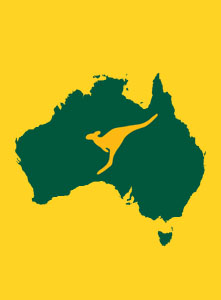The calendar used around the world these days, for most purposes, is the Gregorian calendar, introduced in 1582 by Pope Gregory XIII. It ironed out a few little problems in its predecessor, the Julian calendar (established by Julius Caesar in 46 BC), which had in turn been based on the Roman calendar. The early Roman calendar had ten months rather than twelve, with January and February being added later. This explains a bit of an anomaly in the names of four of our months (more on this later).
So, what is behind the names of our months, names we take for granted, and use constantly?
January was named after Janus, an ancient deity, regarded by the Romans as presiding over doors and gates, and beginnings and endings. Janus is often represented as having two faces, pointing in opposite directions.
February’s name comes from the name of a Roman purification festival, Februa, held towards the middle of this month.
March is the month of Mars, the Roman god of war, and was the first month of the early Roman calendar. Mars was the father of Romulus and Remus, the legendary founders of Rome.
The origin of April is slightly mysterious. It was called Aprīlis by the Romans, and may be related to the notion of plants ‘opening’ in spring.
May was named after the goddess Maia – but was it the Greek goddess of that name, identified with the Roman goddess of fertility, Bona Dea? Or was it a different Roman goddess, also named Maia?
June is yet another source of uncertainty. Some say it was named after the Roman goddess Juno, but others say that it is from Latin Jūnius, the gens of Rome.
July is one of two months named after flesh-and-blood Roman leaders. Julius Caesar was born in this month, and it was named in his honour.
The second month named after a ruler is August, named after the first Roman emperor, Augustus.
And now we get to the last four months of the year, and the peculiarity mentioned earlier. September, the name for our ninth month, is Latin for ‘seventh’. The name for our tenth month, October, is Latin for ‘eighth’, November is Latin for ‘ninth’, and (you guessed it), the name for our twelfth month, December, is Latin for ‘tenth’.
There’s something quite touching in the fact that these words, used all over the English-speaking world, by children in primary school, by hi-tech organisations, by us all, have such ancient origins, and that we still have the lovely anomaly in the naming of those four last months.





